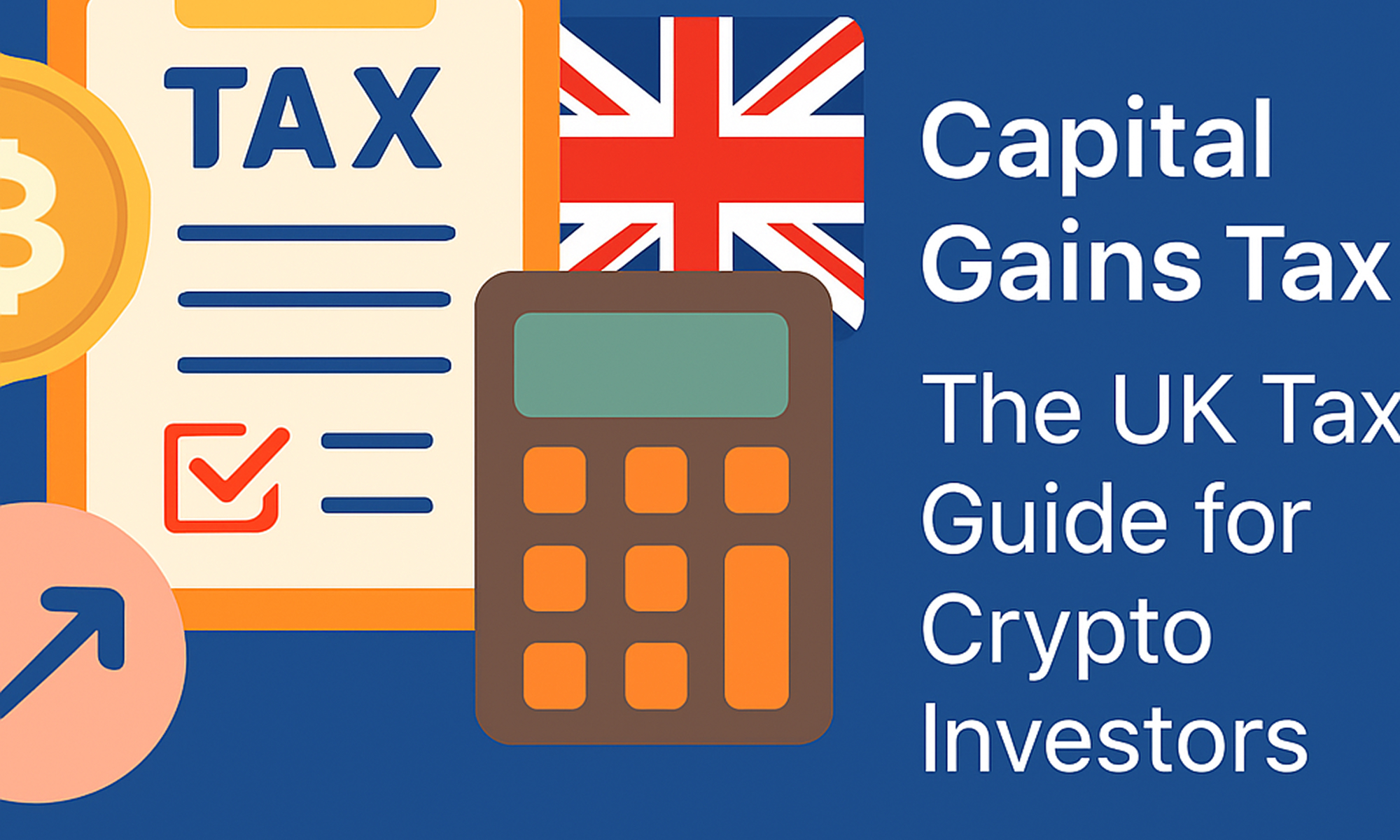
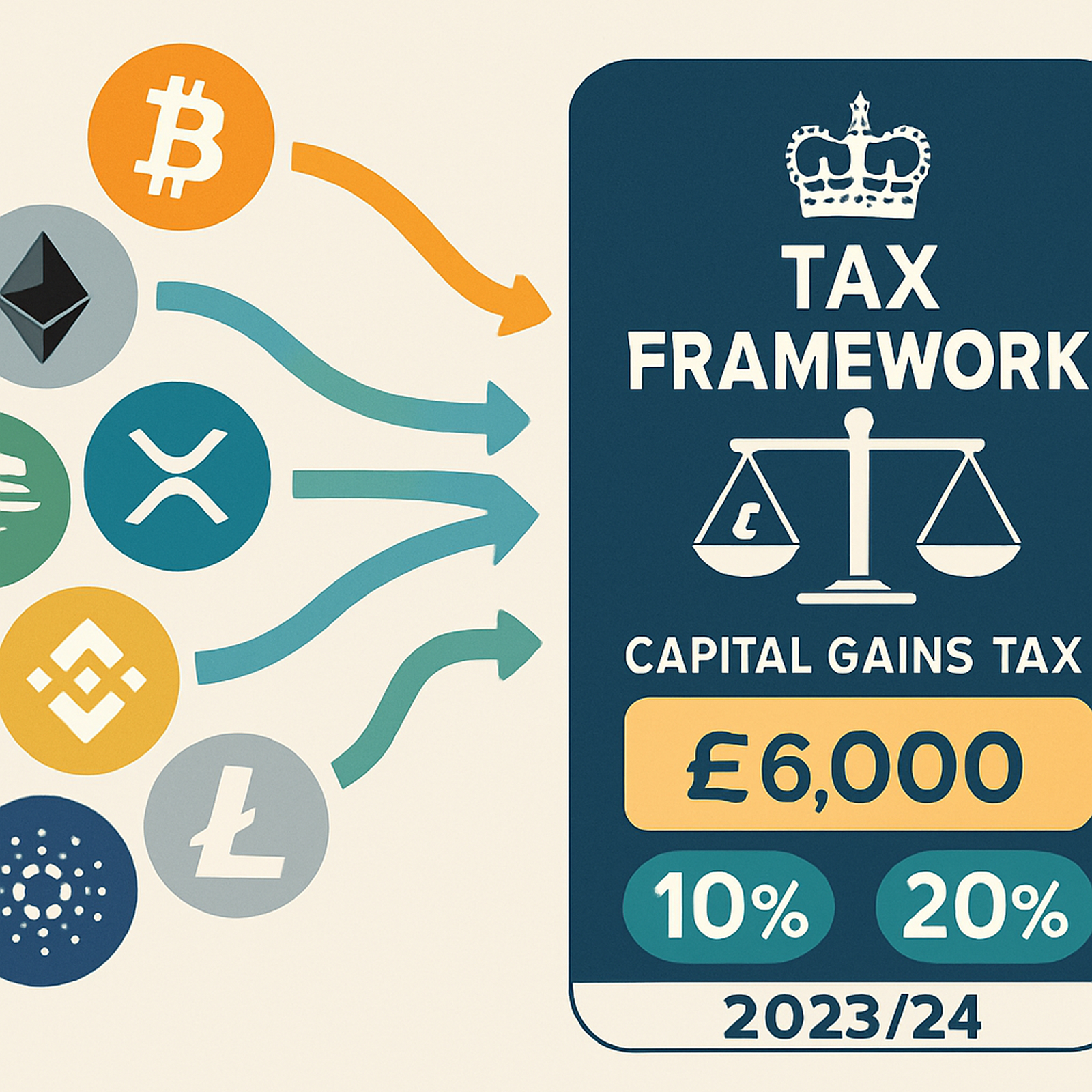
Capital gains tax on cryptocurrency has become one of the most misunderstood and anxiety-inducing aspects of crypto investing in the UK. With HMRC treating digital assets as property rather than currency, every sale, swap, or disposal can trigger significant tax implications that catch investors off guard.
This comprehensive guide consolidates everything you need to know about crypto capital gains tax in one definitive resource. Whether you're a retail investor with your first Bitcoin purchase or an active trader managing complex multi-exchange portfolios, you'll find practical guidance, real-world examples, and professional insights that transform confusion into compliance confidence.
From understanding basic disposal events to navigating complex DeFi scenarios, this guide covers the complete spectrum of crypto CGT obligations. You'll discover not just what HMRC requires, but how to optimise your tax position while maintaining full compliance—knowledge that can save thousands in unnecessary tax payments and potential penalties.
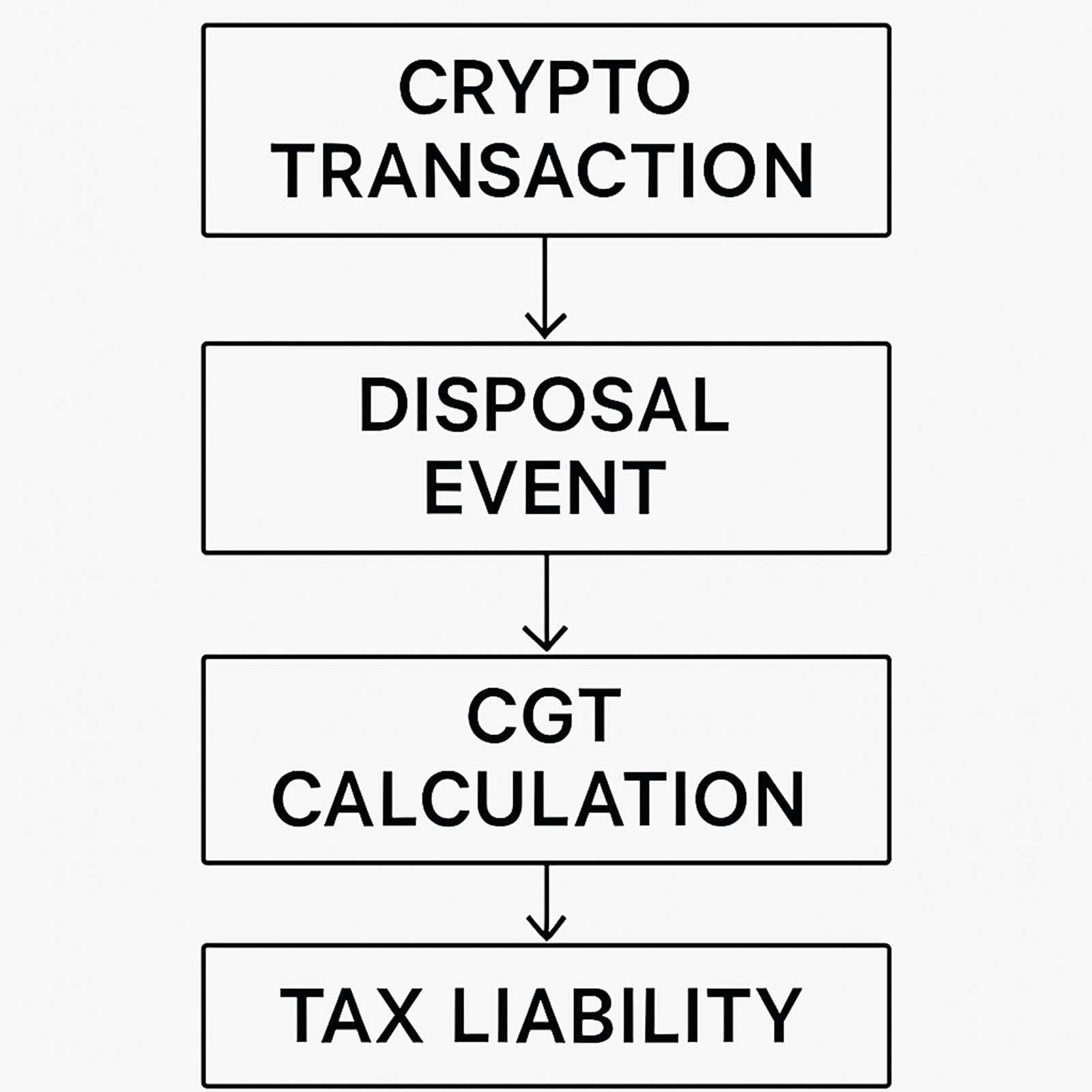
Capital Gains Tax (CGT) represents the cornerstone of UK cryptocurrency taxation, yet most investors fundamentally misunderstand how it applies to digital assets. HMRC treats cryptocurrency as property, meaning every disposal triggers potential CGT liability regardless of whether you convert to pounds.
The most common misconception among crypto investors is believing only sales for fiat currency create tax obligations. In reality, disposal events include:
Direct Sales: Selling Bitcoin for £15,000 that you bought for £10,000 creates a £5,000 capital gain
Crypto-to-Crypto Swaps: Trading Ethereum for Bitcoin triggers CGT on the Ethereum disposal
Spending Cryptocurrency: Using crypto to purchase goods, services, or NFTs counts as disposal at market value
Gifting Digital Assets: Transferring crypto to others (except between your own wallets) creates disposal events

For the 2024/25 tax year, cryptocurrency capital gains are taxed at:
The annual exempt amount has been dramatically reduced to £3,000 for 2024/25, meaning gains above this threshold face immediate tax liability. At HashTax, we've seen this reduction catch many clients off guard, with previously tax-free gains now generating substantial obligations.
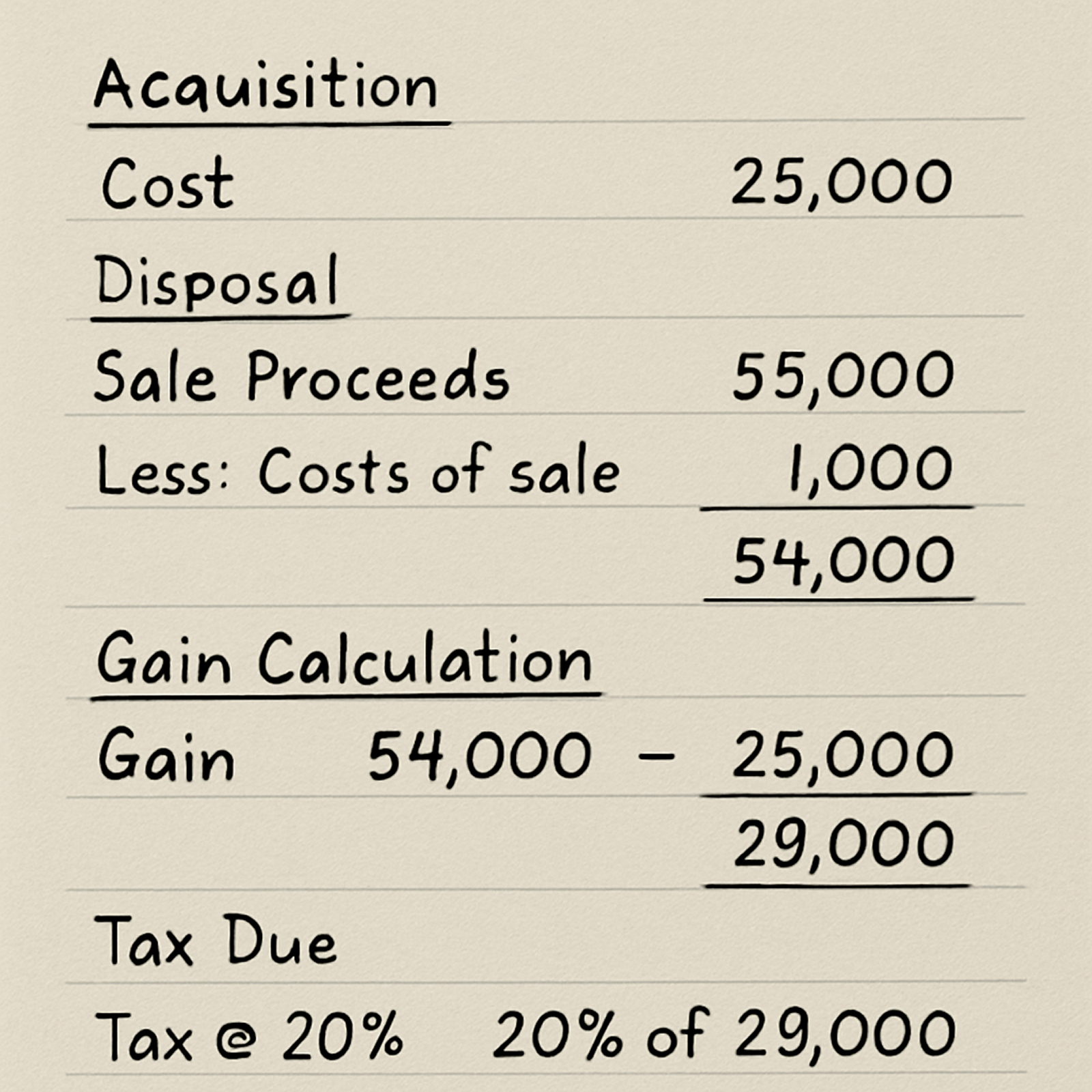
Consider Sarah, a retail investor who made these transactions:
CGT Calculation:
This example demonstrates how seemingly simple transactions can create substantial tax liabilities that many investors fail to anticipate or calculate correctly.
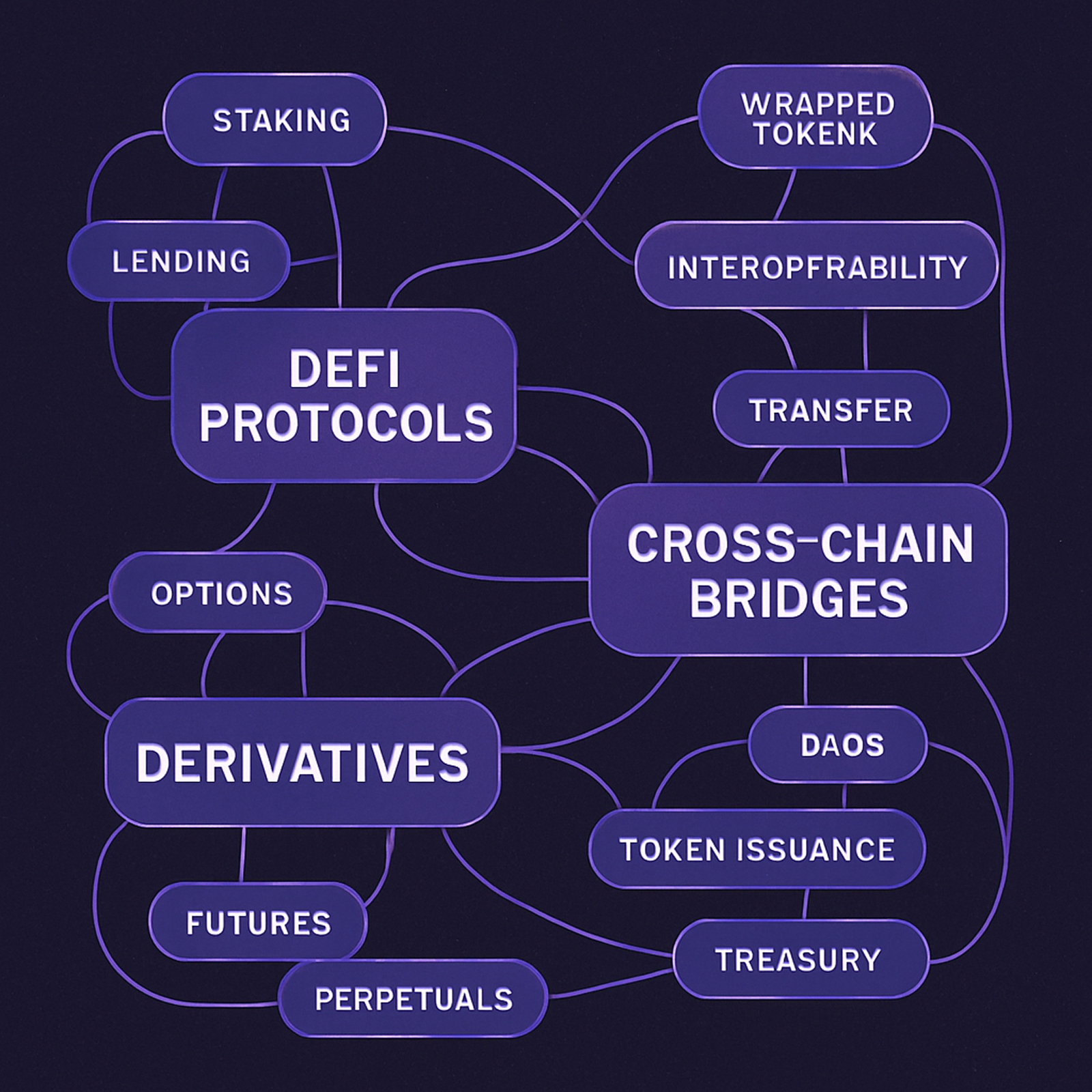
Advanced crypto activities introduce exponential complexity to CGT calculations, often requiring professional analysis to ensure accuracy and compliance. These scenarios frequently involve multiple simultaneous disposal events, unclear valuation mechanisms, and novel tax treatments.
Decentralised finance activities create some of the most challenging CGT scenarios. Each DeFi interaction typically involves multiple taxable events:
Liquidity Provision Example:When providing liquidity to a ETH/USDC pool, you're technically disposing of both assets to receive LP tokens. If you deposit £10,000 worth of ETH (acquired for £7,000) and £10,000 USDC, you've triggered a £3,000 capital gain on the ETH disposal—even though you haven't "sold" anything in traditional terms.
Visual: DeFi transaction flowchart showing each step creating separate CGT events with cumulative tax implications
At HashTax, we've analysed portfolios where active DeFi participants generated over 2,000 taxable events in a single year across multiple protocols. One TraderTax Pro client's yield farming activities created £45,000 in reportable gains despite never converting to fiat—a complexity impossible to manage accurately without professional analysis.
HMRC distinguishes between investment activity (subject to CGT) and trading activity (subject to income tax). This classification dramatically affects tax treatment:
Investment Activity Indicators:
Trading Activity Indicators:
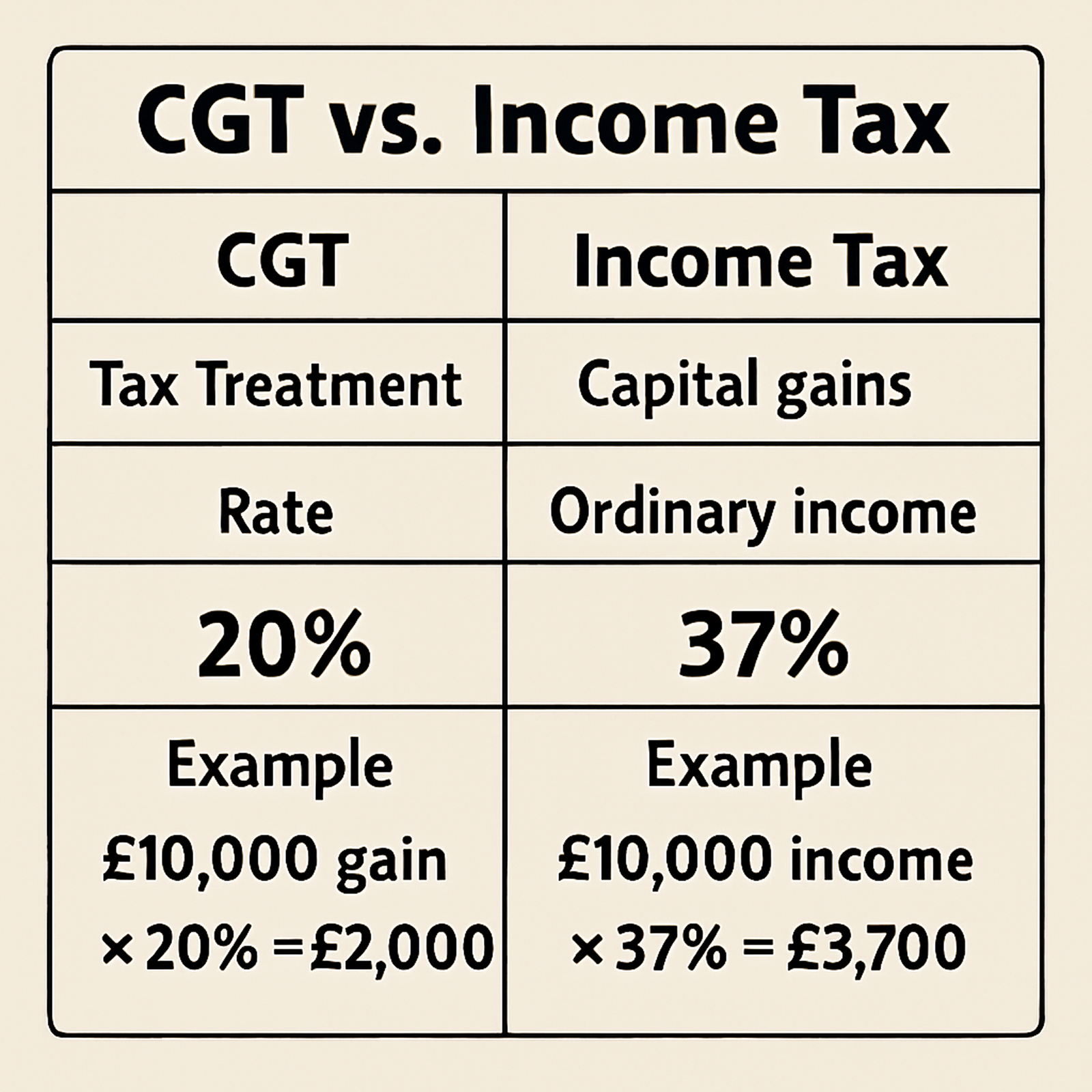
The distinction becomes crucial for active traders. Income tax rates can reach 45% for additional rate taxpayers, compared to CGT's maximum 20% rate. However, trading activity offers different deduction opportunities and loss relief mechanisms.
UK tax residents face CGT obligations on worldwide cryptocurrency gains, creating complex situations for internationally active investors:
Common Scenarios:
One HashTax CryptoWealth Advisor client held cryptocurrency acquired during US residence. Determining the sterling cost basis required reconstructing historical exchange rates and proving acquisition details for HMRC compliance—a process requiring specialist international tax expertise.

Unlike shares, which offer identification choices, cryptocurrency must be pooled under Section 104 rules. All identical assets are pooled with averaged acquisition costs:
Pooling Example:
Section 104 Calculation:
This pooling requirement prevents cherry-picking specific units for tax optimisation—a strategy available with share investments but prohibited for cryptocurrency.
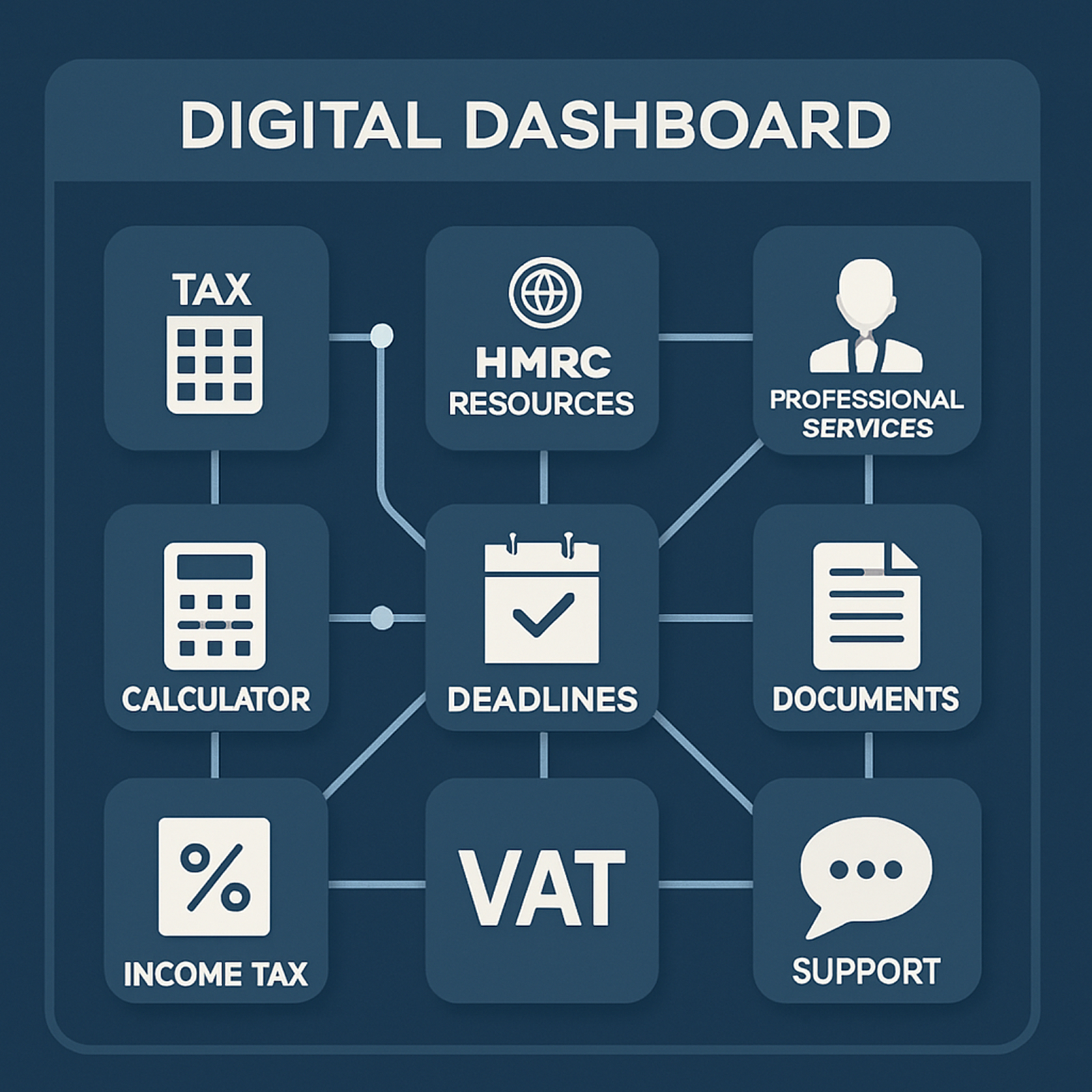
Effective crypto CGT management requires combining official HMRC resources with specialised tools designed for cryptocurrency's unique complexities. The right combination of resources can mean the difference between accurate compliance and costly errors.
Cryptoassets Manual (CRYPTO20000-CRYPTO22270): HMRC's comprehensive guidance covering all aspects of cryptocurrency taxation, including specific examples and calculation methods.
Capital Gains Manual: General CGT principles that apply to cryptocurrency, particularly valuable for understanding advanced concepts like business asset rollover relief and incorporation relief.
Self Assessment Help Sheets: SA108 Notes provide specific guidance on reporting capital gains, while the CGT summary pages offer calculation worksheets.
While HMRC provides the rules, cryptocurrency's complexity often requires specialised calculation support:
Exchange Integration Capabilities: Professional services like HashTax's TraderTax Pro integrate with 30+ exchanges to ensure complete transaction capture—a critical requirement given that manual tracking typically misses 15-25% of transactions.
Historical Price Data: Accurate CGT calculations require precise sterling valuations at disposal dates. Professional services maintain institutional-grade price feeds covering thousands of cryptocurrencies across multiple time zones.
Cost Basis Reconstruction: For portfolios with missing historical data, specialised reconstruction methodologies can rebuild compliant cost basis records using blockchain analysis and exchange forensics.
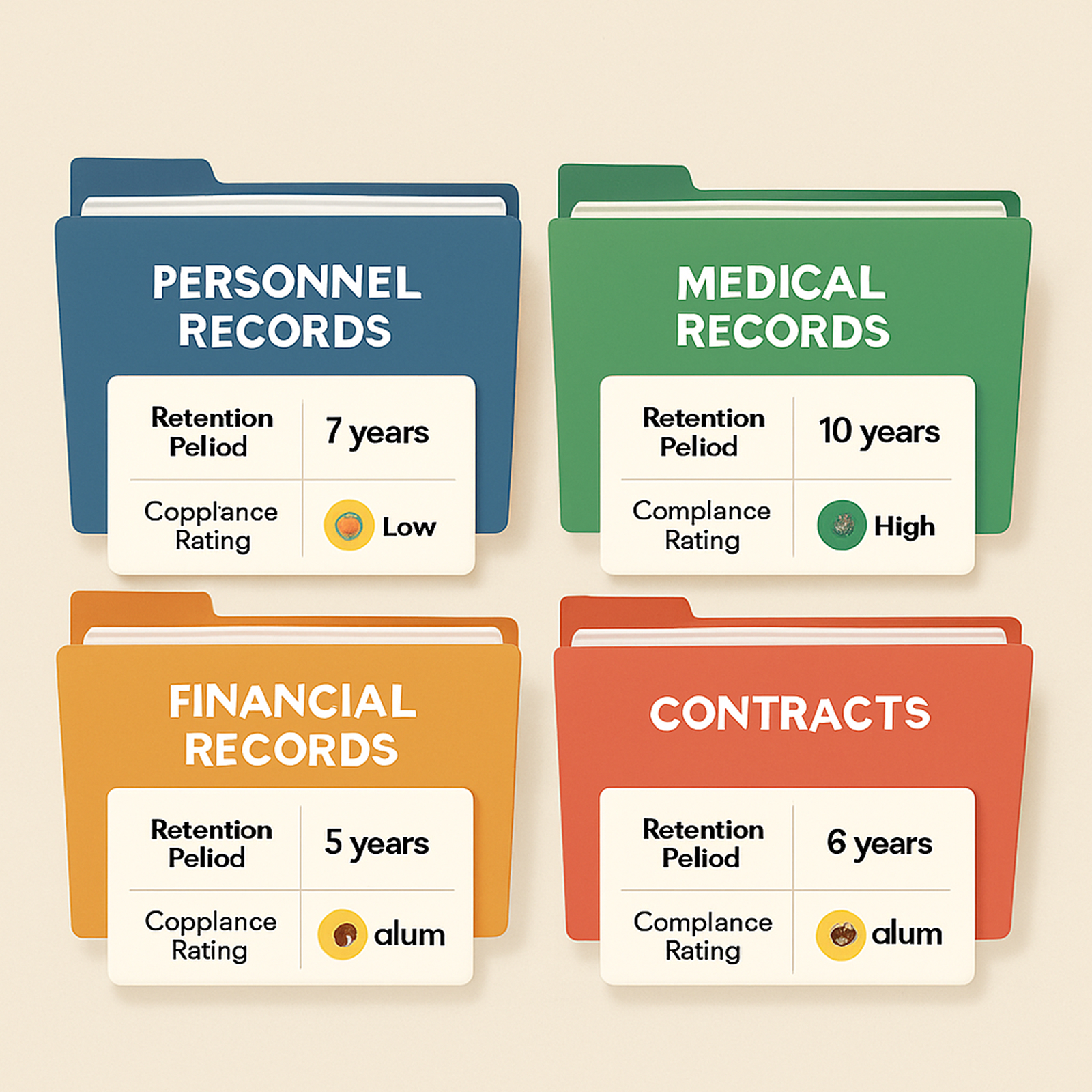
HMRC expects comprehensive records supporting all CGT calculations:
Essential Records for Each Transaction:
Professional Standard Documentation: HashTax clients benefit from institutional-grade record keeping that includes cross-platform reconciliation, multiple price source validation, and audit-ready formatting—standards that significantly exceed typical DIY approaches.
The complexity of maintaining accurate records increases exponentially with trading volume. At HashTax, we've found that investors with 500+ annual transactions require professional record-keeping systems to maintain compliance reliability.

Through analysing thousands of crypto portfolios, HashTax has identified patterns and strategies that consistently optimise tax outcomes while maintaining full HMRC compliance. These insights represent real-world application of CGT rules to cryptocurrency's unique characteristics.
Strategic loss realisation can significantly reduce CGT liability, but cryptocurrency's volatility creates unique opportunities and pitfalls:
Timing Strategies: Unlike traditional assets, cryptocurrency markets operate 24/7 across global time zones. This creates opportunities for same-day loss harvesting when markets decline, but requires careful attention to HMRC's same-day and 30-day rules.
Cross-Platform Coordination: Active traders often hold identical cryptocurrencies across multiple exchanges. Strategic disposal sequencing across platforms can optimise loss harvesting while maintaining desired portfolio exposure.
Case Study Success: One TraderTax Pro client reduced their CGT liability from £18,000 to £7,500 through strategic loss harvesting across three exchanges. The key was timing disposals to utilise the full annual exempt amount while harvesting sufficient losses to offset remaining gains.
The reduced £3,000 annual exempt amount requires more strategic planning than ever before:
Multi-Year Planning: Spreading large disposals across tax years can multiply exempt amount utilisation. However, this strategy requires careful market timing and portfolio management.
Spouse Utilisation: Married couples can potentially double their exempt amount through strategic asset ownership transfers before disposal—though this requires careful planning to avoid bed and breakfasting provisions.
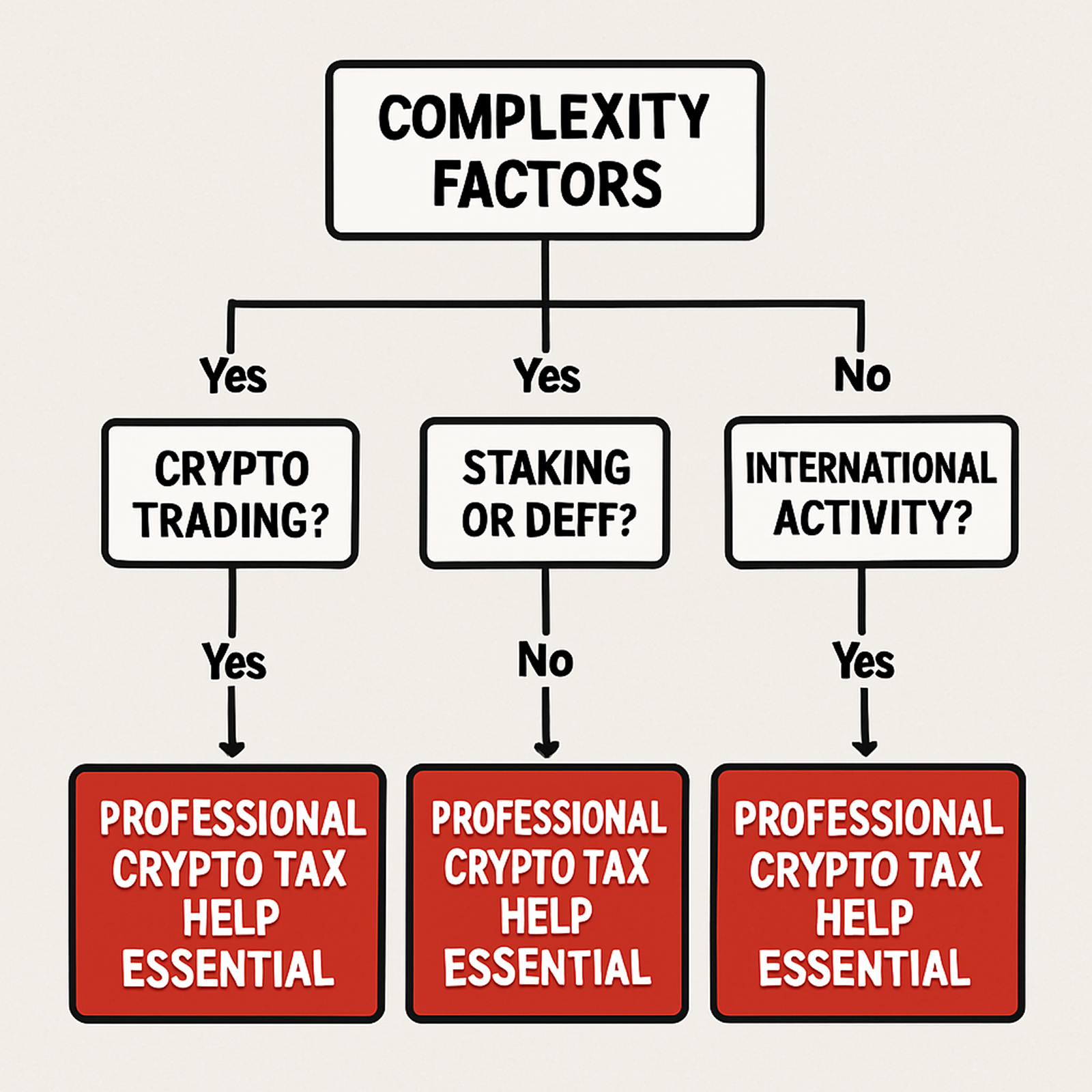
HashTax's analysis reveals clear patterns indicating when professional assistance becomes essential:
DIY May Work For:
Professional Help Essential For:
ROI Threshold Analysis: Our data shows investors with annual crypto gains exceeding £10,000 typically save 3-5x the service cost through optimisation strategies and error prevention—making professional analysis financially compelling beyond just compliance assurance.
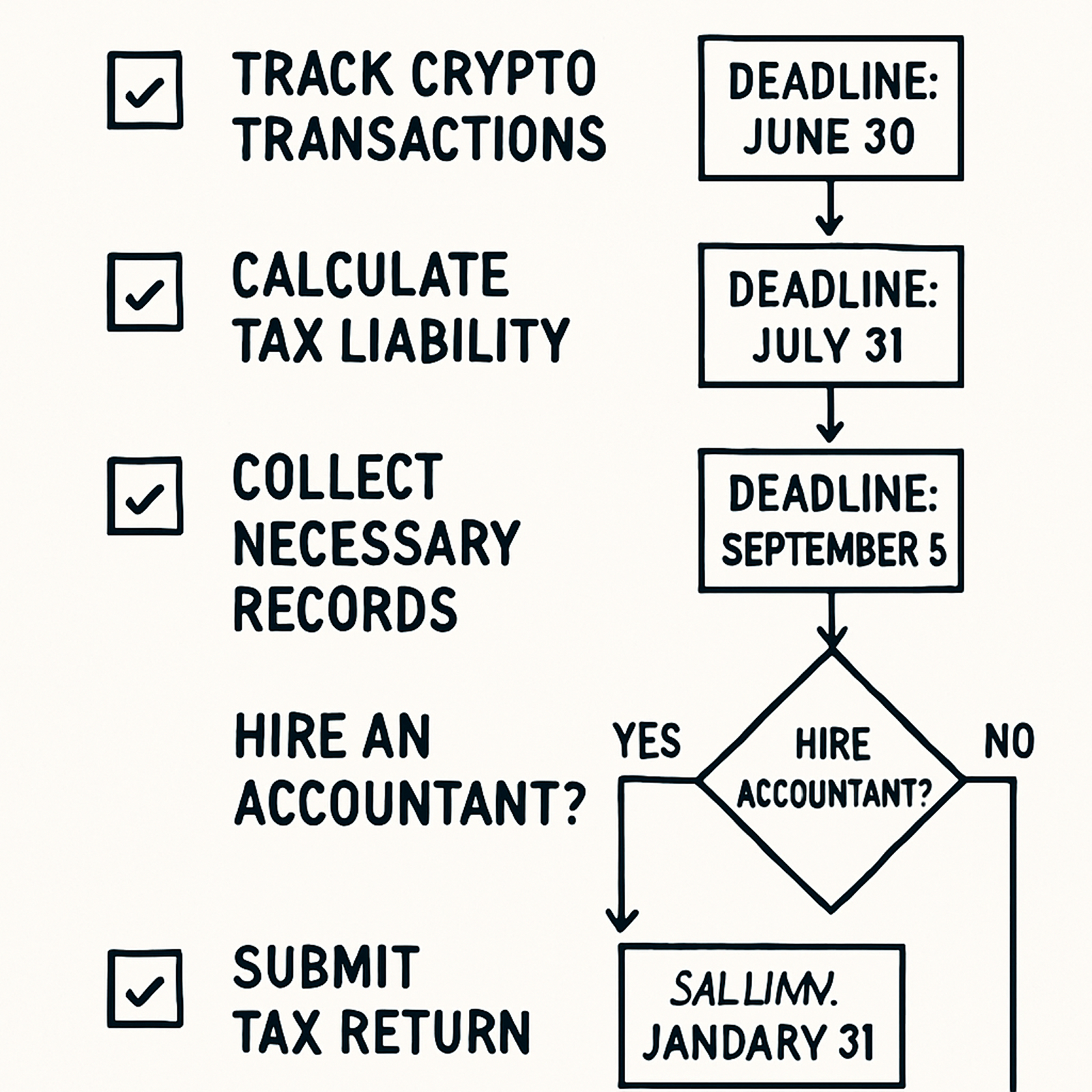
Transform your understanding into action with this structured approach to crypto CGT compliance. Whether you choose DIY methods or professional assistance, these steps ensure you address all critical obligations while optimising your tax position.
Complete Transaction Inventory: Log into all exchanges and download complete transaction histories. Missing data from defunct exchanges or forgotten platforms creates the largest compliance gaps we see at HashTax.
Calculate Rough Position: Estimate your total gains and losses to understand potential tax liability magnitude. This initial assessment determines whether you need immediate professional assistance or can proceed with DIY methods.
Assess Complexity Level: Review our professional help threshold criteria. Investors often underestimate their complexity until attempting actual calculations.
Choose Your Compliance Path: Based on complexity and comfort level, select either professional assistance or DIY approach with appropriate tools and resources.
Implement Record-Keeping Systems: Establish ongoing systems for tracking future transactions—prevention is far more efficient than reconstruction.
Professional Consultation Decision: For complex situations, schedule a HashTax consultation before attempting DIY calculations. Our analysis often reveals optimisation opportunities and compliance requirements that DIY approaches miss entirely.

Ready to ensure your crypto CGT compliance while optimising your tax position? HashTax offers free consultations to assess your specific situation and recommend the optimal approach. Our CryptoTax Navigator service provides comprehensive support for retail investors, while TraderTax Pro handles the most complex multi-exchange and DeFi portfolios.
Book your free crypto CGT consultation today and discover how professional analysis can transform tax anxiety into strategic advantage.
About HashTax: The UK's leading cryptocurrency accounting specialists, helping investors achieve complete HMRC compliance while optimising tax positions through professional analysis and strategic guidance.